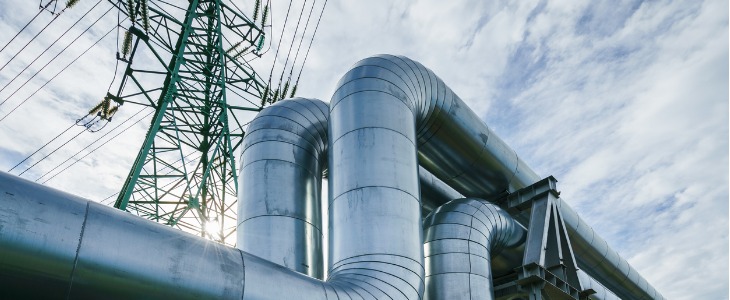 Which is Cheaper, Electric Heat or Gas Heat?
Which is Cheaper, Electric Heat or Gas Heat?
Heating is one home expense you can’t forgo. It’s so important that most states have regulations requiring that rental properties have space heating of some sort.
There are a lot of different ways to heat a home from fireplaces to underground geothermal systems. Two of the most common heating systems are forced air furnaces that use natural gas and electric heat pumps. These options bring up a good question.
Which is cheaper, electric heat or natural gas heat? And what factors make one cheaper than the other? Let’s find out!
Factors That Affect Heating Costs
Which heat source is cheaper isn’t a straightforward answer. The most cost-effective solution for your cousin in California might not be the same for your home in the northeast or in Florida. And that brings us to the first factor.
Location
Energy rates are largely dependent on where you live. No two cities have the same exact electric and gas rates. For example, in Texas where there’s a lot of natural gas production that energy source is cheaper than just about anywhere else in the country during the winter. However, during the summer when electricity demand goes sky high so do the gas prices since natural gas is used to generate electricity for AC units. Local taxes also play a role in energy costs.
Deregulation
Do you live in a deregulated area? Deregulation gives energy consumers options for who supplies their power, which affects the rate you pay. Customers that take the time to comparison shop usually get better deals than people in regulated areas with a single provider.
Efficiency
Some heating systems are more efficient than others. New gas heating appliances can be up to 96% efficient. Electric heat systems can be up to 100% efficient. But here is where efficiency plays another role in cost. Energy.gov notes that most electricity is generated by gas, oil or coal-powered generators that convert only 30% of the fuel into electricity.
Solar Panels
If your home is outfitted with a solar panel system this will certainly skew things in favor of electricity.
Supply and Demand
Energy is a supply versus demand industry. When supply is high and demand is low or supply is so high it outpaces demand, then rates are going to be lower. The opposite is also true. If demand is high and supply is low the rates are going to increase.
Energy Production Expenses
This is the biggest wild card, and it can change over time. How much it costs to produce gas or generate electricity impacts the price end consumers pay.
And the Winner is . . . Natural Gas Heat
At this point in time, natural gas heat is cheaper in most areas of the country in terms of operation only in homes that aren’t equipped with solar panels. (If you’re installing a new heating system electric options are cheaper.) It’s important to note that propane gas heating is usually more expensive than both natural gas and electricity.
Gas is the cheaper option, largely because we have an abundance of natural gas right now that’s relatively inexpensive to produce. Despite an increase in demand, there’s such a large surplus of natural gas prices are expected to hit a 50-year low in the coming months. But analysts expect prices to rise again once the supply is more in line with demand.
The kicker is 35% of the electricity in the U.S. is generated using natural gas, making it the largest energy source used. So even if you’re using an electric heat pump your home may be indirectly heated by gas. Because of the inefficiencies in converting natural gas to electricity you’re better off just using gas.
Whether you choose to use gas or electricity for heating this winter, Spark Energy has you covered! We offer fixed rates on electric and gas services in deregulated markets across the U.S. Check to see if gas and electric plans are available in your area.



